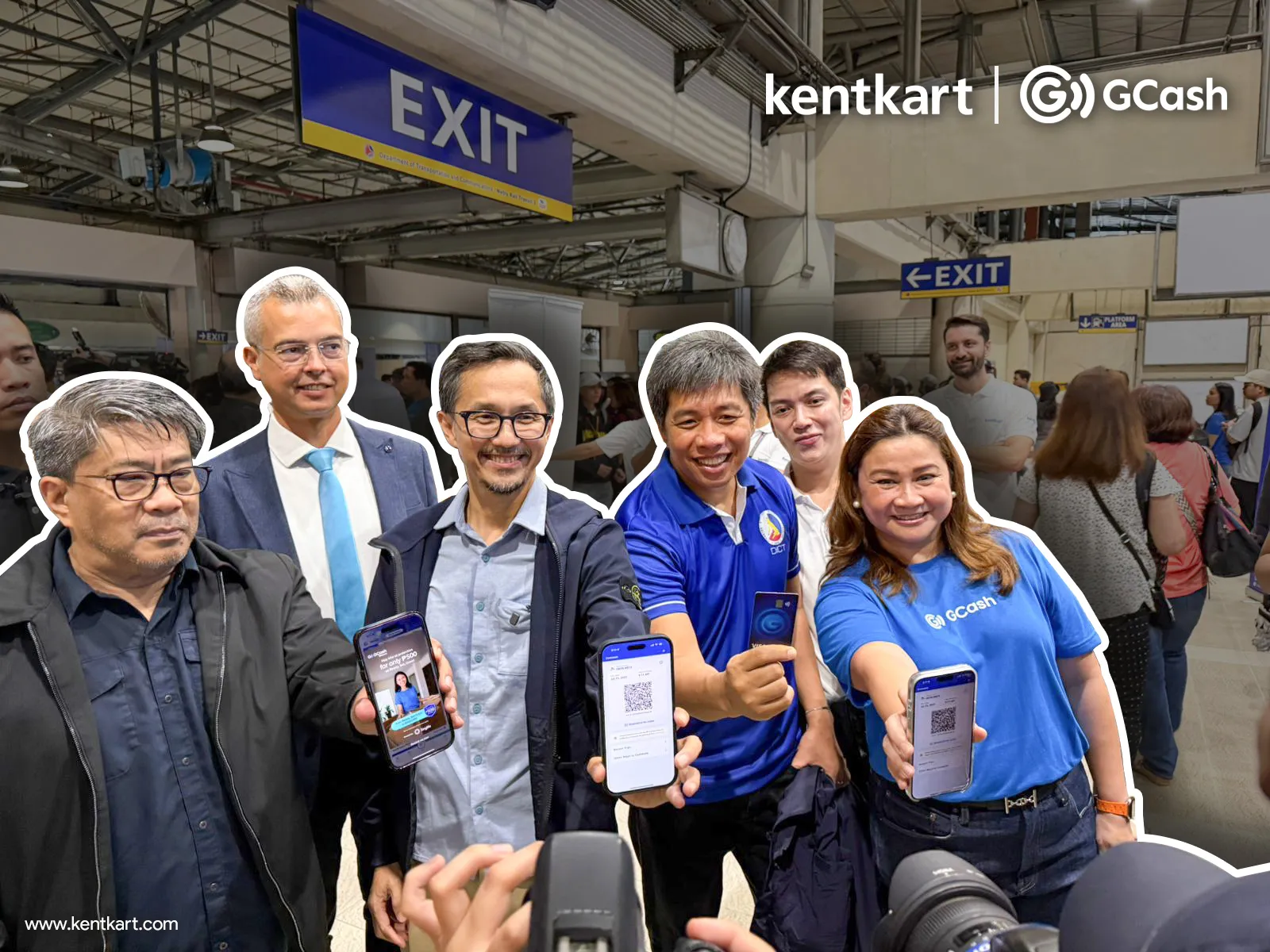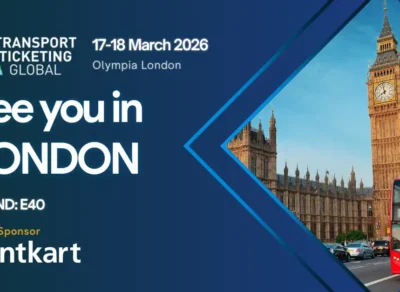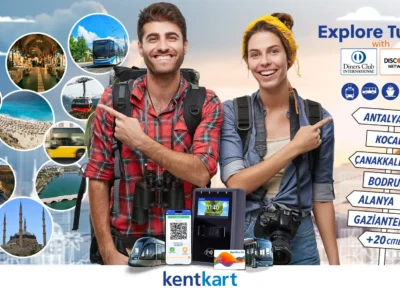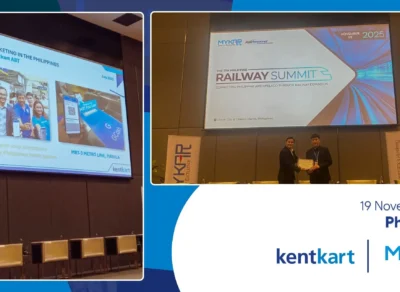
Kentkart Delivers the Philippines’ First Open-Loop Fare System for Metro Transit
A Landmark Project Enabling EMV and QR Payments Across All MRT-3 Stations in Metro Manila
Overview
Kentkart has successfully delivered a landmark project in Manila by implementing an open-loop EMV fare collection system across all 13 stations of the MRT-3 metro line. Bringing together the Department of Transportation (DOTr), Department of Information and Communications Technology (DICT), Manila Metro Rail Transit System, Bangko Sentral ng Pilipinas (BSP), GCash, Visa, Mastercard, Landbank, and Kentkart, this project represents a major step forward in the modernization of fare payment systems in the Philippines.
Previously dependent on closed-loop transit cards and single-journey paper tickets, the MRT-3 system has now transitioned to a fully digital, multi-payment environment. With hardware and software developed entirely by Kentkart, the project enables commuters to pay fares using contactless debit and credit cards (Visa and Mastercard), as well as through QR code and NFC-based payments via GCash, the country’s leading financial super app.

Challenge
As Metro Manila’s busiest urban rail line, MRT-3 serves thousands of daily passengers across a highly congested corridor. The government’s broader push toward digital transformation further accelerated the urgency for a modern, cashless solution.
The main challenge lay in integrating the new fare system into the existing turnstiles at all stations. The project required swift deployment, minimal passenger disruption, and the ability to support multiple payment methods — all without affecting daily operations.
Solution
Kentkart developed and deployed a full end-to-end solution, including hardware, software, and system integration. This solution introduced:
- Contactless debit and credit card payments (Visa & Mastercard)
- QR code and NFC payments via the GCash app
- Distance-based, check-in/check-out fare calculation
- Instant fare display and refund information on validator screens
- Transaction processing times under one second, ensuring fast gate throughput
The validator hardware was custom-engineered to fit seamlessly into MRT-3’s existing gates. Each validator supports multiple fare media – EMV cards, QR codes, and mobile NFC – through a single compact unit, significantly improving efficiency and user convenience.

Implementation
The project was rolled out across all 13 stations of MRT-3, with a minimum of two upgraded gates per station in the initial deployment phase. Despite the complexity of installation within a high-traffic public environment, the entire system was installed and made operational within just six days. Notably, passenger flow continued uninterrupted throughout the deployment, thanks to well-coordinated fieldwork and pre-planned integration procedures.
Impact
The MRT-3 project marks the first-ever implementation of open-loop EMV fare collection in a Philippine metro system, aligning with the growing regional shift toward contactless, bank card-based transit payments. By enabling passengers to use existing debit and credit cards or mobile wallets, the system removes the need for proprietary transit cards or cash — simplifying fare payment and increasing accessibility for commuters.
With Metro Manila home to over 13 million residents, many of whom rely heavily on public transportation, the introduction of contactless payments on MRT-3 plays a key role in supporting the Philippine government’s agenda for smarter, more efficient urban mobility. It also fosters broader adoption of digital payments in daily life, helping build long-term habits of cashless convenience.
Within the first week of operation, the system recorded over 10,000 daily users, with usage continuing to rise. Commuters benefit not only from faster gate access and multiple payment options — including Visa, Mastercard, and GCash — but also from enhanced security, thanks to the advanced fraud protection features embedded in EMV technology.
The system sets a new national benchmark for digital public transport, demonstrating how collaboration across public and private sectors can drive transformative outcomes for both cities and citizens.



